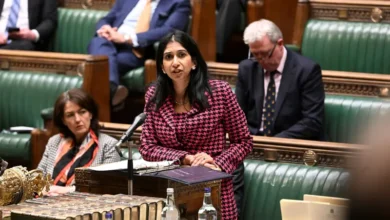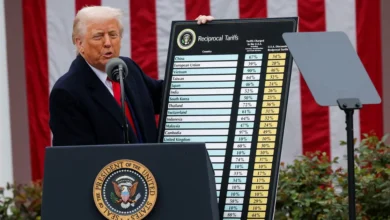What is the Iowa caucus and why is it important?

Republican voters in Iowa are gearing up to participate in the caucus that will test former President Donald Trump’s influence over the party as the race to the 2024 presidential election officially begins. But record cold temperatures will likely affect turnout.
Winning the state won’t guarantee the party’s nomination but it will create momentum leading up to the Republican convention in July, when the party candidate will be declared.
Caucus and primaries are the two ways the Republicans and the governing Democrats choose their candidates. The majority of US states hold primaries while some traditional Republican states such as Iowa hold caucuses to elect delegates. The delegates elected in caucuses and primaries vote in the convention.
This unique voting affair in Iowa – a Republican-dominated state – has marked the beginning of presidential primaries since 1972.
Here is all to know about the Iowa caucuses.
What is the Iowa caucus and how does it work?
Iowa caucuses are in-person meetings among voters of each party in Iowa. They are similar to primaries, except they are run by parties instead of the state.
Public speeches are delivered on behalf of the candidates to rally support. Registered Republicans cast their vote through a secret paper ballot. No postal ballot is allowed. The votes are then tallied and winners are announced in a matter of few hours.
Registered Republican voters who are legal residents of Iowa will gather in caucus precincts as early as two hours before the commencement of the caucus. The voters have to be 18 years old by the time the elections are held in November.
Precincts are venues within Iowa assigned for the Republican in-person vote. This year, there are over 1,600 such venues, typically school buildings, churches and community centres.
People who are not registered voters or registered Republicans can also participate in the caucus, but they have to register in person at their precinct.
Why is the Iowa caucus important?
If we look at numbers alone, the Republican caucus will not be much of an indicator of who the Republican nominee would be. Iowa is allocated a mere 40 delegates to the Republican National Convention in Milwaukee this summer, making up only 1.6 percent of the total.
However, since the caucus is unique and inaugural to the primaries, candidates can leverage the momentum they can gain from its results as they head to the New Hampshire primary the following week.
The results of the caucuses are the first litmus test of the viability and momentum of Trump and other candidates in the race. They will also help gauge the strength of support for candidates, especially this year in blizzard-stricken Iowa.










